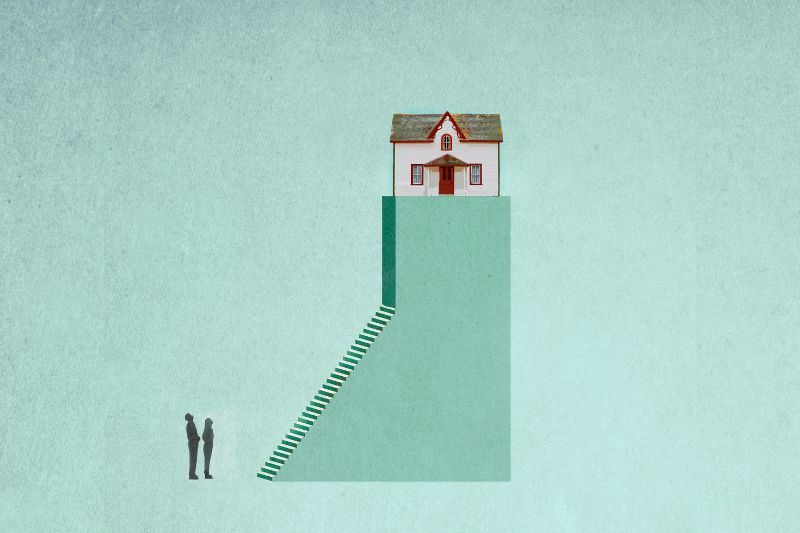Keywords: Housing Affordability Crisis
There are more than 24 results, only the first 24 are displayed here.
Become a subscriber for more search results.
-

AUSTRALIA
- Max Jeganathan
- 07 May 2025
In the wake of an unexpectedly decisive election, Australians rejected grievance politics from both right and left. What emerged instead was a quiet preference for stability, civility, and competence: qualities that don’t often headline campaigns, but this time shaped the outcome. In 2025, trumpery just didn’t cut it.
READ MORE
-

EDUCATION
- Erica Cervini
- 23 April 2025
Despite a lot of talk about education, neither of the major parties has talked about the funding of universities. However this federal election is likely to be determined by voters under the age of 45, the very group that rising university fees and HELP (higher education loan program) debts are hitting the hardest.
READ MORE
-

AUSTRALIA
- Barry Gittins
- 13 March 2025
Australia’s political class might make grand promises, but for those on the margins — homeless, underemployed, struggling with addiction — these pledges mean little. The people who have been left behind know the game is rigged. As elections approach, they watch from the outside, knowing their vote was never meant to count.
READ MORE
-

INTERNATIONAL
- David Halliday
- 13 December 2024
In 2024, a fifth of Americans reported having no close friends, and the number is growing, especially among those without college degrees. So what are the societal structures behind this crisis in loneliness, and how we can rebuild meaningful connections?
READ MORE 
-

AUSTRALIA
- Claire Heaney
- 13 December 2024
For years, Coles and Woolworths have been accused of squeezing both producers and shoppers in equal measure. With new regulatory changes on the horizon and a web of inquiries underway, the supermarket duopoly finds itself under unprecedented scrutiny. But will these reforms actually lower grocery bills?
READ MORE 
-

AUSTRALIA
- Kevin Bell
- 29 November 2024
2 Comments
With unaffordable housing pushing families into impossible choices, homelessness affecting 120,000 people, and systemic inequities deepening, we must ask: What kind of society do we want to build — and for whom?
READ MORE 
-

AUSTRALIA
- Erica Cervini
- 25 November 2024
4 Comments
Once seen as the champions of climate action and progressive politics, the Greens are now grappling with internal chaos, falling poll numbers, and a disillusioned voter base. From controversies over identity politics to disputes about housing and Middle East policies, the party is facing a critical question: What do they stand for today?
READ MORE
-

AUSTRALIA
- David Halliday
- 08 November 2024
As house prices soar, half the nation finds itself locked out of the property market. In conversation with Eureka Street, Alan Kohler untangles the web of tax incentives, population pressures, and government policies fueling the housing crisis to discover why, despite public outcry, solutions remain frustratingly out of reach.
READ MORE 
-

AUSTRALIA
- David James
- 24 October 2024
3 Comments
Soaring property prices and declining fertility rates are entwined in a feedback loop, threatening long-term economic stagnation. As younger Australians are priced out of the market, many are delaying or forgoing parenthood, leading to an increasingly divided and unsustainable society.
READ MORE
-

AUSTRALIA
- Adam Hughes Henry
- 08 October 2024
5 Comments
Australia’s housing crisis is increasingly seen as a byproduct of system rigged for the wealthy, while ordinary Australians grapple with debt and rising costs. As home ownership becomes increasingly out of reach, it's time to rethink housing as a right, not just a means of wealth accumulation.
READ MORE
-

AUSTRALIA
- Mark Gaetani
- 08 August 2024
5 Comments
The Parliamentary Budget Office has unveiled the staggering cost of Australia's negative gearing and capital gains tax policies. As the housing affordability crisis deepens, critics question whether politicians' personal interests are hampering reform in a nation where one in five taxpayers owns investment property.
READ MORE
-

AUSTRALIA
- Jennifer McVeigh
- 05 August 2024
With soaring housing costs and dwindling support services, homelessness is no longer just a problem for the marginalised – it's ensnaring the elderly and working poor. In the current housing crisis, homelessness services are overwhelmed, and sadly cannot respond to the increased demand.
READ MORE